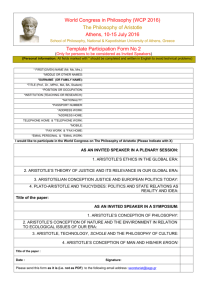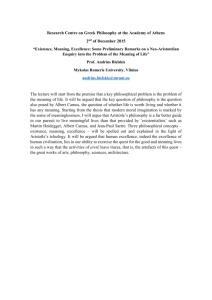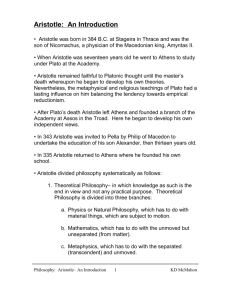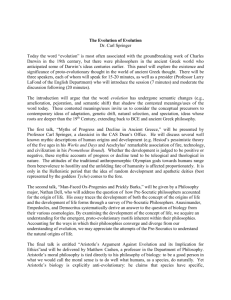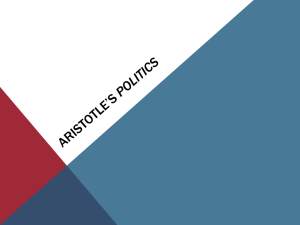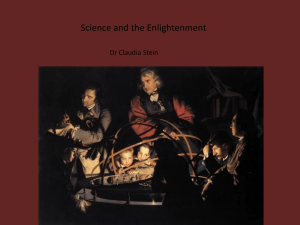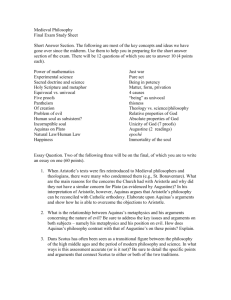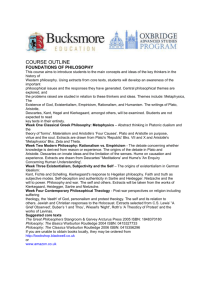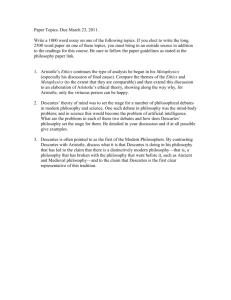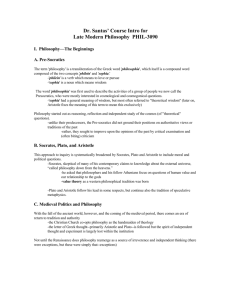Aristotle
advertisement
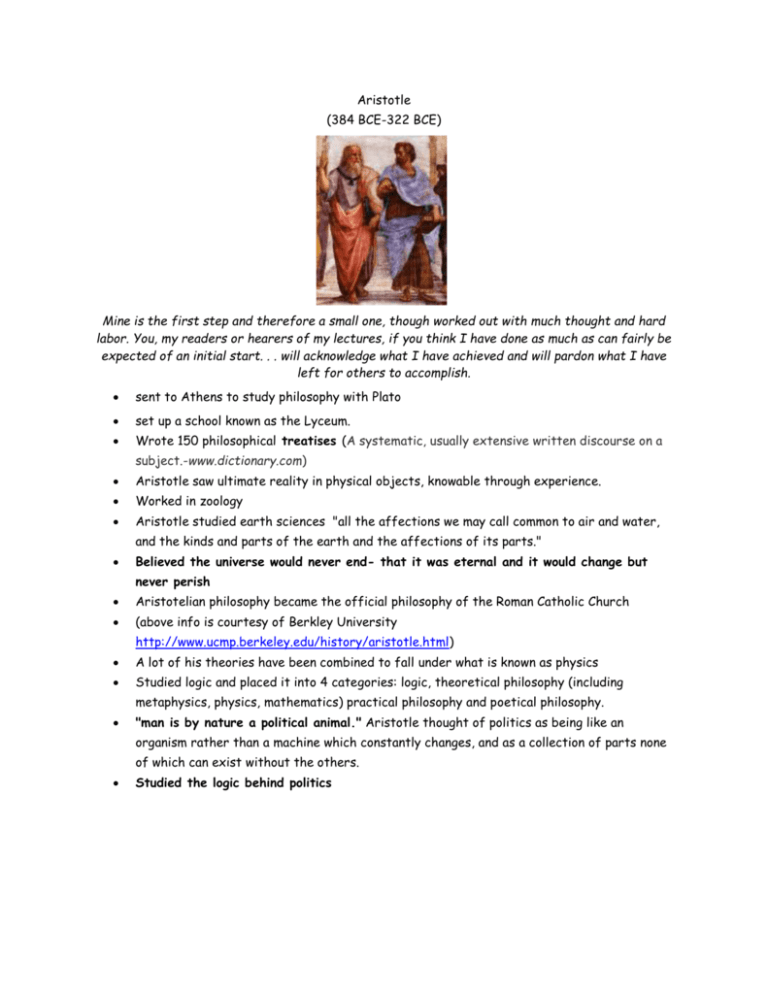
Aristotle (384 BCE-322 BCE) Mine is the first step and therefore a small one, though worked out with much thought and hard labor. You, my readers or hearers of my lectures, if you think I have done as much as can fairly be expected of an initial start. . . will acknowledge what I have achieved and will pardon what I have left for others to accomplish. sent to Athens to study philosophy with Plato set up a school known as the Lyceum. Wrote 150 philosophical treatises (A systematic, usually extensive written discourse on a subject.-www.dictionary.com) Aristotle saw ultimate reality in physical objects, knowable through experience. Worked in zoology Aristotle studied earth sciences "all the affections we may call common to air and water, and the kinds and parts of the earth and the affections of its parts." Believed the universe would never end- that it was eternal and it would change but never perish Aristotelian philosophy became the official philosophy of the Roman Catholic Church (above info is courtesy of Berkley University http://www.ucmp.berkeley.edu/history/aristotle.html) A lot of his theories have been combined to fall under what is known as physics Studied logic and placed it into 4 categories: logic, theoretical philosophy (including metaphysics, physics, mathematics) practical philosophy and poetical philosophy. "man is by nature a political animal." Aristotle thought of politics as being like an organism rather than a machine which constantly changes, and as a collection of parts none of which can exist without the others. Studied the logic behind politics

